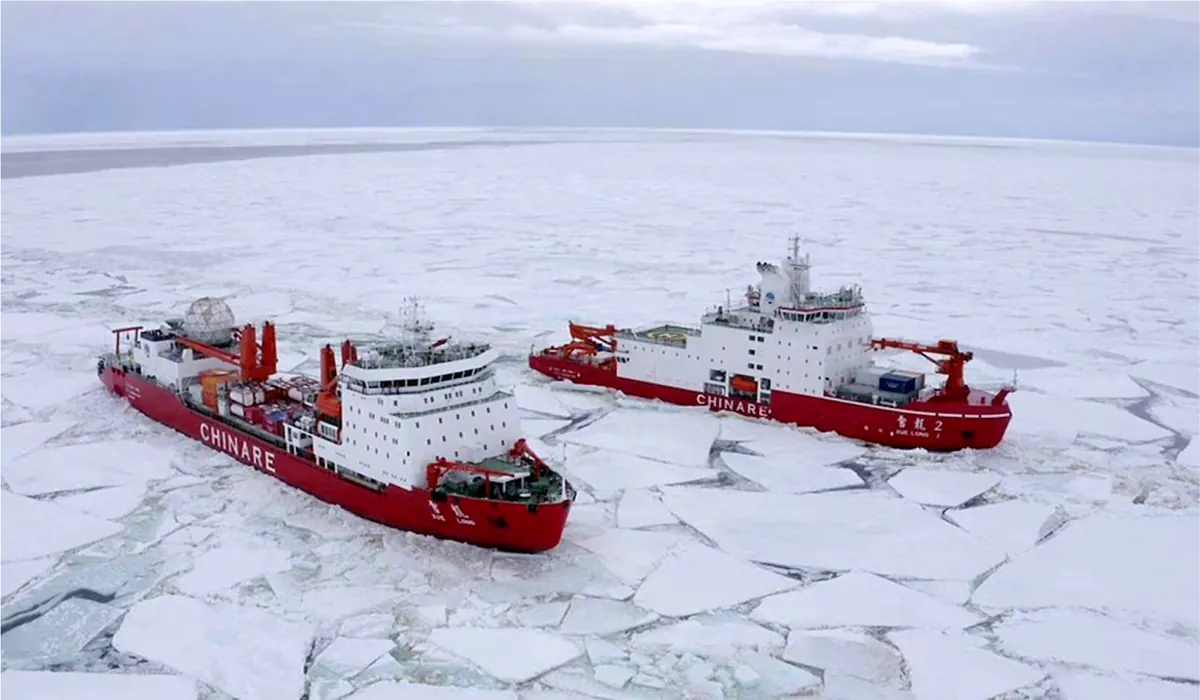In a historic move, the Chinese coast guard has ventured into the Arctic Sea for the first time, partnering with Russian counterparts for a joint patrol. This significant event, reported on October 2, 2024, marks a new chapter in Sino-Russian cooperation and Arctic exploration.
The arrival of the Chinese vessel "Meishan" on October 1, 2024, coincided with two notable 75th anniversaries: the founding of the People's Republic of China and the establishment of China-Russia diplomatic relations. This milestone follows recent joint patrols conducted by the two nations in the northern Pacific Ocean since September 21, 2024.
The Arctic Ocean, the smallest and shallowest of the world's five major oceans, is becoming increasingly important for global shipping. As climate change accelerates, with the Arctic warming about twice as fast as the global average, sea ice is retreating, opening up new possibilities for maritime trade. The Northwest Passage and Northern Sea Route are emerging as viable alternatives to traditional shipping lanes.
China, which declared itself a "near-Arctic state" in its 2018 Arctic policy white paper, is keen to explore these new opportunities. The country launched its first domestically built icebreaker, Xuelong 2, in 2018, demonstrating its commitment to Arctic exploration. Meanwhile, Russia, boasting the longest Arctic coastline of any country, sees potential in delivering more oil and gas to China amid Western sanctions.
The development of Arctic shipping routes offers several advantages:
- Reduced travel times between Europe and Asia
- Decreased reliance on traditional chokepoints like the Strait of Malacca
- Access to the Arctic's vast natural resources, including an estimated 13% of the world's undiscovered oil reserves
However, these opportunities come with significant challenges and responsibilities. The Arctic is home to unique ecosystems and wildlife, including polar bears and narwhals. The melting of Arctic sea ice contributes to rising global sea levels, and permafrost thaw is releasing greenhouse gases, further accelerating climate change.
"The rapid changes occurring in the Arctic demand international cooperation and responsible stewardship to balance economic opportunities with environmental protection."
As Arctic shipping routes become more accessible, the need for international cooperation and governance increases. The Arctic Council serves as the leading intergovernmental forum promoting cooperation in the region, while the United Nations Convention on the Law of the Sea (UNCLOS) governs maritime rights.
The joint Chinese-Russian patrol in the Arctic Sea represents not only a milestone in bilateral relations but also a reflection of the changing geopolitical landscape in the High North. As these nations expand their presence in the region, it will be crucial to balance economic interests with environmental conservation and respect for the indigenous peoples who have inhabited the Arctic for thousands of years.
As the Arctic continues to transform, offering both challenges and opportunities, the international community must work together to ensure sustainable development and responsible resource management in this unique and fragile ecosystem.
